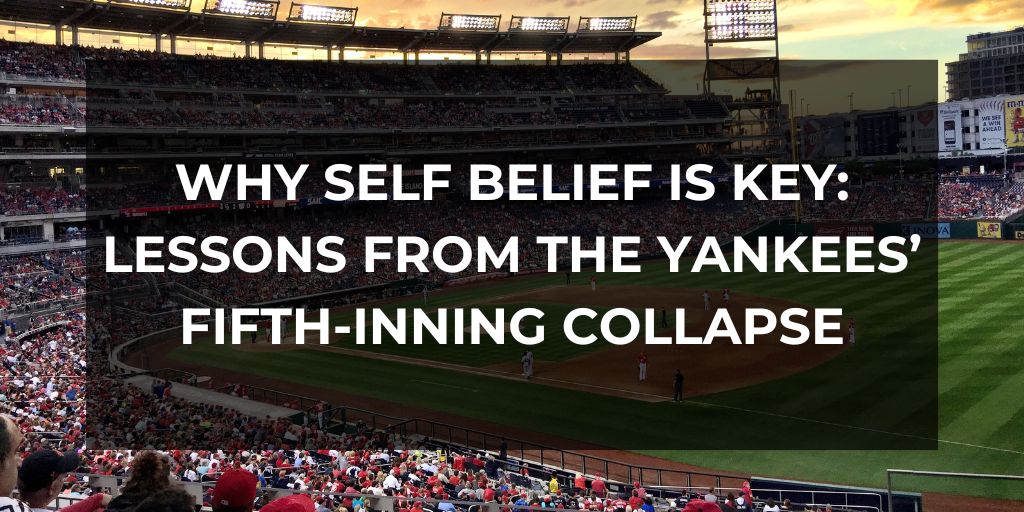Why Self-Belief Is Key: Lessons from the Yankees’ Fifth-Inning Collapse
In sports, success often boils down to more than skill alone—it’s the mind that dictates the outcome when pressure is high, especially in pivotal moments. The recent Yankees game, with its infamous fifth-inning meltdown, offered a powerful reminder of one of the fundamental truths I believe in deeply: you can’t consistently outperform your own belief in yourself. Watching that inning, it was evident that self-belief—or perhaps a lapse in it—played as much a role in the outcome as any physical misstep.
Self-belief doesn’t just magically appear during game time; it’s something that’s cultivated well before players step onto the field. It’s not enough to rely solely on external validation or fleeting confidence. Belief in oneself has to be an unshakeable force rooted in consistent training, preparation, and mental conditioning. But even top athletes sometimes find themselves in situations where doubt creeps in, especially when things start to go sideways. For the Yankees, once that first mistake occurred, it seemed like a floodgate of doubt opened, and with each error, their collective self-belief appeared to waver.
Self-belief is foundational because it’s what holds us steady under pressure. When a team or individual believes in themselves and their ability to execute, they are far more likely to handle mistakes calmly, reset quickly, and move forward. This wasn’t the case for the Yankees that inning. As a mental performance coach, I work with athletes to ensure that they have the tools to reinforce their self-belief, even during setbacks. When self-belief is present, mistakes can be compartmentalized. They’re just bumps on the road rather than walls we can’t overcome.
The fifth inning wasn’t merely a series of unfortunate errors; it was a tipping point that shows how a lapse in confidence can derail even the most capable athletes. To illustrate this, let’s consider a tool I often recommend: self-talk. When athletes face high-pressure situations, positive, deliberate self-talk is a way to stay grounded. Statements like, “I’ve trained for this,” or, “I can handle this moment,” help shift the focus from past mistakes to present opportunities. It’s about bringing attention back to what they control—the next pitch, the next play.
Another critical element is preparation. We often see athletes physically preparing for a big game, but mental preparation is just as essential. Mental conditioning sessions simulate high-stress scenarios, so that self-belief is nurtured through resilience in those very situations. With proper mental training, players can develop a buffer against those moments when things go wrong. When a player believes they’ve prepared for any outcome, they’re less likely to spiral from one error into several.
As the Yankees’ experience showed us, having belief in oneself is about more than hoping to win—it’s about trusting that, no matter the situation, you have what it takes to recover and perform. Self-belief doesn’t guarantee success, but a lack of it almost certainly guarantees failure. For any athlete, developing unbreakable self-belief is the difference between staying in the game and letting one inning define the outcome.
You can follow Sam on Twitter: @SuperTaoInc


